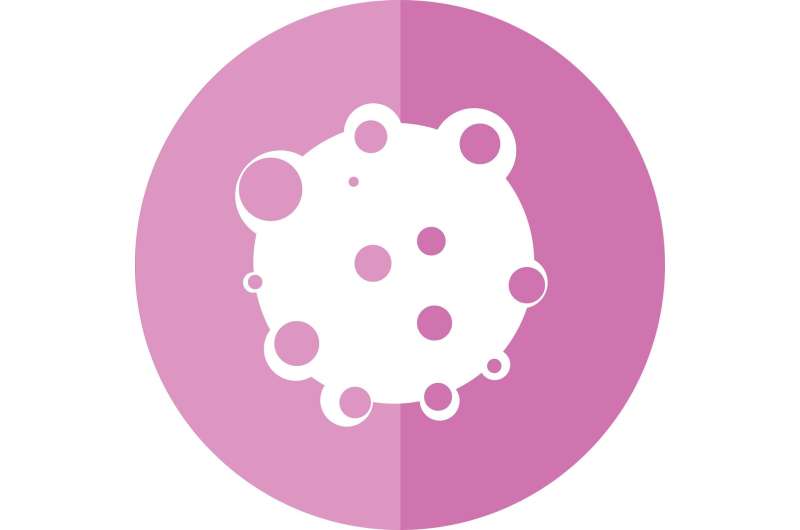A step forward in the struggle against neuroblastoma, a type of childhood cancer

A group of researchers from the University of Seville and the Seville Biomedicine Institute (Instituto de Biomedicina de Sevilla—IBiS) has published a study in which they determine that a protein called CD44 makes it possible to identify the population of mother cells that are responsible for the aggressive nature and low survival rate of neuroblastoma, a type of childhood cancer that mainly affects children of two and three years old.
"We believe that the protein CD44 contributes to the aggressive behaviour of the cancerous mother cells responsible for tumour growth and for metastasis. We believe that interrupting the functioning of this cell adhesion molecule can offer a new therapeutic option to eliminate these cells and so improve the treatment of neuroblastoma," explains the researcher and author of the study, Ricardo Pardal.
Tumour samples were used in the research taken from patients with neuroblastoma at the University Hospital Virgen del Rocio in Seville, following all the ethical and legal requirements that are obligatory in this type of research. The study took place in the laboratories of Centre for Research, Technology and Innovation at the University of Seville (Centro de Investigación, Tecnología e Innovación de la Universidad de Sevilla—CITIUS) and the Seville Biomedicine Institute (IBiS).
"Our results would not be able to improve prevention but they would improve diagnosis of the disease, affecting our ability to refine the type of treatment needed in a subgroup of patients suffering with neuroblastoma. Therefore, these findings should help to optimise the prognosis and treatment of neuroblastoma, at least in a subgroup of patients which presents high levels of CD44 in their tumours," Doctor Pardal adds.
This research was codirected by the University of Seville teachers Ricardo Pardal and Francisco M. Vega, de la Universidad de Sevilla, and was funded by Spanish Cancer Association (Asociación Española contra el Cáncer—AECC), the SAF programme of the Spanish Ministry of Science and Innovation and the European Research Council (ERC Starting Grant). In addition, the work counted on the collaboration of Asociación de Pacientes NEN (Niños Enfermos de Neuroblastoma—an association for children suffering with neuroblastoma), whose efforts helped, in an important way, with continued advances in the treatment of this severe disease.
More information: Francisco M. Vega et al, CD44-high neural crest stem-like cells are associated with tumour aggressiveness and poor survival in neuroblastoma tumours, EBioMedicine (2019). DOI: 10.1016/j.ebiom.2019.10.041




















